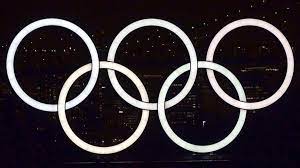
The Evolution of Olympic Records: A Historical Perspective
When it comes to the Olympic Games, records are a symbol of human achievement and progress. Over the years, athletes from around the world have continually pushed the boundaries of what is considered possible, inspiring us with their extraordinary feats. Let's delve into the fascinating journey of the evolution of Olympic records from its inception to the modern era.
The Birth of Olympic Records
The origins of Olympic records can be traced back to ancient Greece, where the ancient Olympic Games were born. These ancient competitions, held in Olympia, celebrated the physical aptitude and prowess of Greek athletes. However, the concept of recording and documenting records as we do today was not formally established at this time.
It was not until the revival of the Olympic Games in 1896 that the modern era of Olympic records began. The International Olympic Committee (IOC) meticulously started recording and recognizing the achievements of athletes, paving the way for the evolution we witness today.
The Early Years
In the early years of the modern Olympic Games, records were predominantly maintained for track and field events. Athletics has always been at the core of the Olympics, and it was in these disciplines that athletes first etched their names into the record books.
Throughout the early 20th century, records were primarily based on the best performances achieved in each event. However, as technology advanced and sports sciences improved, it became evident that stricter regulations and standardization were necessary to ensure fair and accurate comparisons across different competitions.
The Introduction of Standards
In an effort to create a level playing field and accurately measure achievements, international governing bodies for each sport introduced specific rules and regulations. These standards ensured that performances were officially recognized as records if they met the established criteria.
In addition to the technical standards, doping control measures were also implemented to maintain the integrity of Olympic records. Athletes found guilty of using performance-enhancing substances face disqualification and the erasure of their records, emphasizing the importance of fair play and clean competition.
Breaking Barriers and Shattering Records
As the years went by, athletes continuously broke records, achieving new heights that were once unimaginable. From Jesse Owens shattering multiple records at the notorious 1936 Berlin Olympics to Usain Bolt's lightning-fast sprints in recent times, each generation produced exceptional individuals who redefined the limits of human capabilities.
Advancements in training methods, nutrition, and technology played a significant role in the steady progression of Olympic records. From specially designed tracks to performance-enhancing gear, every aspect was optimized to minimize limitations and maximize human potential.
The Influence of Culture and Politics
It is important to acknowledge that the evolution of Olympic records has not occurred in isolation from the socio-cultural and political movements of the times. From the boycotts of the 1980 and 1984 Olympics to the Cold War rivalry, external factors have often influenced the overall performance of athletes, impacting the records achieved during specific periods.
Where Do We Stand Today?
As we stand at the dawn of a new era of Olympic Games, the records of today have reached mind-boggling levels. Athletes have pushed the boundaries to an extent that would have been unfathomable just a few decades ago. The constant pursuit of excellence and the indomitable spirit of human ambition continue to shape the records of tomorrow.
The evolution of Olympic records is a testament to the indelible human spirit, capturing the essence of the Games themselves. From humble beginnings to the grand stage of global competition, Olympic records inspire us to strive for greatness and prove that no achievement is out of reach.